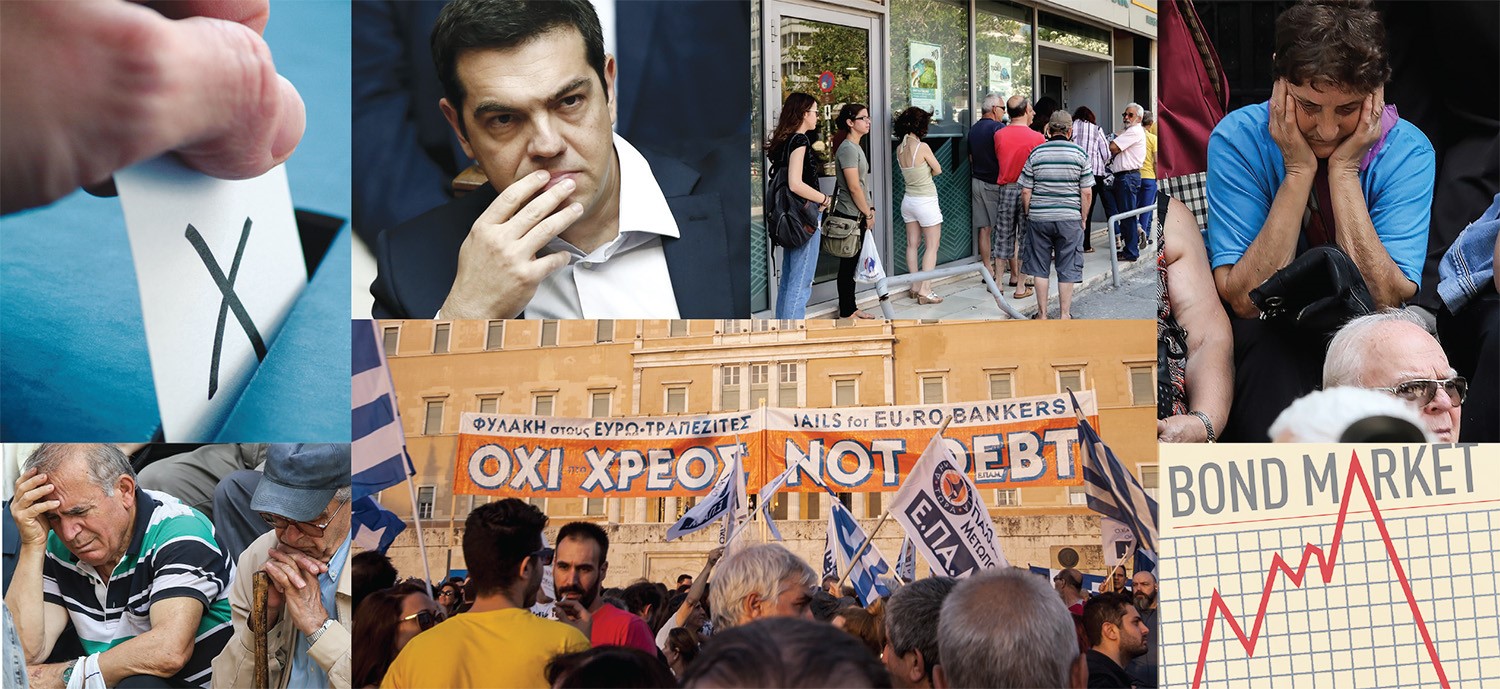What the Greek referendum means for property

3 July 2015 | by Jack Sidders
European real estate prices have been seemingly immune to the Greek crisis this year, with little sign of any volatility in the six months since the anti-austerity Syriza government was elected.
But with prime minister Alexis Tsipras’s shock decision to call a referendum on the final bailout terms proposed by the country’s creditors significantly shortening the odds on a Greek exit from the EU, property investors are starting to contemplate its possible consequences.
The question of whether Grexit will have major implications for real estate pricing will be determined by the reaction of the bond markets, says EY Real Estate corporate finance partner Mathieu Roland-Billecart.
He says: “The concern is that Grexit could cause havoc in the bond market. What impact would that have on property?”
When markets opened on Monday following the halt to talks last weekend, the initial reaction, in the bond markets at least, was muted.
Peripheral European markets saw yields on 10-year government bonds move out but only by 25-35 basis points, a fraction of the 387-point correction seen on Greek government debt on 29 June.
CBRE global chief economist and executive director Richard Barkham believes this is a reflection of the fact that the eurozone is in considerably better economic health than the last time the prospect of a Greek default ““ and the potential for a domino effect ““ seriously reared its head and that European banks are now far less vulnerable.
But the relatively muted initial reaction of bond markets to news of the Greek referendum might also be a reflection of the fact that most bond investors still expect the will of the people to be to stay in the euro, according to David Skinner, Aviva Investors’ chief investment officer for real estate.
Consequences of a “˜no’ vote
In the event of a “no” vote, “it is difficult to see a situation where there isn’t some contagion”, he says.
The impact of that, according to Skinner, is likely to be a period of cooling investor confidence, resulting in lower real estate investment volumes across Europe, a push into prime assets in core markets and the potential for the wind to come out of the sails of peripheral markets, with some deals being delayed or terminated all together. However, he says, the long-term impact is likely to be relatively small, given that it is likely to ensure lower interest rates for longer and a potentially strong response from the European Central Bank and its asset purchasing programme.
But others take a grimmer view.
Trinova Real Estate has been selling out of its London holdings over the past year or more on the basis that the capital is fully priced. Partners Sam Resouly and Linus Forsberg now believe a Grexit could trigger a “major asset price correction”.
“[Grexit] is one of several structural threats to what we see as the general asset pricing bubble around the world,” Forsberg says.
Trinova rejects the safe-haven theory that investors will flock back to prime UK markets in the event of a Greek default, arguing instead that a Grexit could in turn trigger a “Brexit” if UK public sentiment is affected badly by the Greek turmoil.
Negative effects of a Brexit
If the UK referendum polls show significant movement in favour of Britain leaving the EU, Resouly believes that occupier sentiment will be negatively affected just ahead of “a significant supply of new office space coming through”.
“That would take the heat out of rental growth, which is what has motivated low-yield buying, so you could see a substantial correction in pricing,” he says.
Toscafund chief economist Savvas Savouri, however, says that a Grexit “can only be positive” for the UK, which will be a “flourishing destination for the evacuating human and financial capital”.
‘A stampede across Europe’
He predicts that prime minister David Cameron will be forced to respond by suspending Britain’s membership of the single labour market on the basis that a wave of migrants from Greece and the unstable regions at its borders will “stampede across Europe”.
Although he says the economic consequences for the rest of Europe will be “ugly”, Savouri is adamant that the UK and London in particular will benefit greatly, dismissing the notion that it is already fully priced.
“What is the precedence for this notion that things are fully priced? We are living in unprecedented times. We have a finite number of assets that are physical and robust being sought by a great deal more capital. Demand is going up. This is no bubble.”
Whatever the consequences of a Grexit, there is a referendum to navigate first. And although most commentators expect the Greek people to vote to stay in the euro, investors might be well advised to have contingency plans just in case.